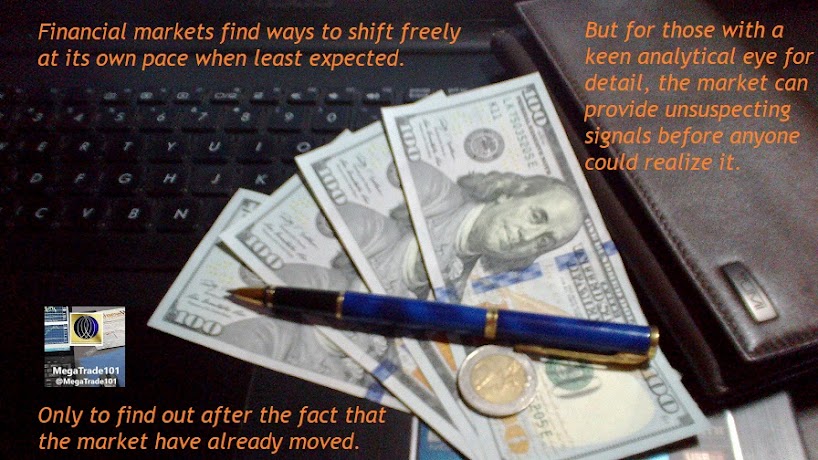Trading the Foreign Exchange market is not as easy as some would claim, may they be professional traders, investors and even money managers of every level and sophistication. Having a better understanding of this market would take years to achieve as it is influenced by so many fundamental and technical factors. Specially for those who have incorporated electronic trading and algorithm formulas into their trading systems.
What makes trading the markets more challenging and interesting is the fact that the challenge of winning and loosing in the market is what makes most serious traders and investors tic, so to speak. The feeling of winning and making money is more often the real reason why people continue to trade despite of loosing more thereafter. And when they do lose it is the stubbornness of making back what was lost and keeping it.
How much one has kept after all the trades can only be called a real winner. It is not the total number of trades done on both sides of a winning trade and a loosing one. As long as the overall net gain has been saved and made use for other investments can only be called a successful investor.
The number of countless trading robots, expert advisor, trading software out there could not even be counted upon as newer ones will always come out to claim that their systems are the best and delivers the bottom line trades. These systems may hold true to their words only at a given period of time, but may not be able to hold true in the long run. As some may have forgotten the best formulas ever written and used by Long Term Capital has failed them leading to one of the worst trading cases in history.
Again, trading can only best suit each individual investor depending on the outlook by which one is satisfied with their investments. Knowing when to trade, not to trade, stop any lose and simply take a profitable trade is one of the basic elements as everyone who reads this blog would say. . . " tell me something I don't already know. "
Money management has all its principles and practises that needs to be followed. Trading the Foreign Exchange market has a few lessons of its own.
Namely:
1. Allocate an appropriate amount of funds which would be invested from your overall portfolio.
2. Having the right orientation of the market, the intricacies of trading FX from reliable sources and proper due diligence can only help make a sound decision.
3. Be independently aware of market conditions, choice of currencies to trade including their correlation ship, trading range, point value /amount of exposure, time table within a trade plan.
4. A trade plan that consist of entry /exit levels, risk tolerance price / point willing to take, alternative strategies available even before entry, profit potential and stop loss of any trades.
5. Opportunities will always be present in the market. what is equally important is to wait for potential trends that may provide a well worth investment contrary to the risk involved. there are 4 quarters in a year, 3 months in a quarter and 4-5 weeks in a month. Choose and determine your trades and discipline.
6. Percentage trading will always provide a better way of trading any market. Having a net gain from an arbitrary hedge strategy to manage risk and absorb wild fluctuations and increased volatility will help maintain, sustain and protect from unexpected fundamental reports or news that may influence the market on its own.
7. Learn to keep what you have made and wait for the next trading opportunity!
8. Take control of your own trades! It is not in the trading platform, software or the broker-dealers that offer FX dealing services that makes you win or lose. As spreads makes every broker-dealer, counter-party earn their revenue from other than making certain that every position done are equally matched, rolled over, swap and netted out on every closing session to avoid further risk in the market.
9. Learn to trade how interbank trading does their trades through different strategies available. Although, retail FX trading has its own limitations that can only be found by trading with the interbank market. However, not everyone may be qualified to do so.
10. Due diligence, Research and constant studies are necessary while making trading decisions. And never be influenced with other brokers opinions and market outlook as many have failed and many were right at times. Any decisions made should always be your own!

No comments:
Post a Comment